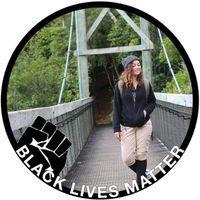
lkaitlyn
-
Posts
318 -
Joined
-
Last visited
-
Days Won
8
Reputation Activity
-
 lkaitlyn got a reaction from THS in FYI
lkaitlyn got a reaction from THS in FYI
RUNNING LIST (A-Z) (new additions: WSU, Arizona, BU)
Boston University: https://www.bu.edu/sociology/graduate-programs/admissions/
Brown University: https://www.brown.edu/academics/sociology/programs/phd
Columbia University: https://sociology.columbia.edu/content/admissions-0
Northwestern: https://sociology.northwestern.edu/graduate/admissions/
Penn: https://sociology.sas.upenn.edu/graduate-program
Princeton: https://sociology.princeton.edu/graduate-program
University of Arizona: https://sociology.arizona.edu/graduate/apply
University of California - Berkeley: https://sociology.berkeley.edu/prospective-students
University of California - Santa Barbara: https://www.soc.ucsb.edu/news-events/item/fall-2021-grad-admissions-deferred
UMass - Amherst: https://www.umass.edu/sociology/graduate/admissions
University of Missouri: https://sociology.missouri.edu/grad/graduate-program
Washington State University: https://soc.wsu.edu/graduate-program/prospective-graduate-students/applying-for-admission/
-
 lkaitlyn got a reaction from THS in Sociology Prospective Graduate Schools
lkaitlyn got a reaction from THS in Sociology Prospective Graduate Schools
Hey! So Ivy League vs. not actually isn't really a thing for PhDs — some of the greatest programs in the country are at non-Ivy schools. PhD admissions are really about research experience, what you write in your application, and research fit with faculty, not as much about grades, so if those who share your research interests happen to be at highly ranked schools, you'd do better applying there than you'd do applying to less selective schools with no research fit.
This year, unfortunately a lot of programs have suspended admissions. Normally I'd suggested UW Gender Studies to you, actually, given your interests, but I believe it has halted applications this year (as has UC Santa Barbara, which also might be good for your interests). That said, many programs are taking applications, and if for some reason things don't work out this year, apply next cycle as well. Many people apply several cycles before they find the right fit.
Given your interests and coming from a gender studies background myself (though focused more on law and incarceration within that subfield), I'd be looking at the following this cycle: University of Michigan (also look at their American Culture PhD), Rutgers, Emory, UCLA, U of Arizona (announcing if taking apps mid-October; also check out Gender Studies), University of Southern California, UC Santa Cruz, UBC Vancouver, and U of Chicago (quant-heavy, but has some amazing trans studies scholars right now).
Beyond that, try looking at where people who have written articles you've found useful for your research currently teach. I found my programs by reverse-engineering like that. Your goal is to find programs where at least 3 faculty members share your research interests broadly, so going backwards by starting with faculty will save you time. Just make sure you check that the programs you apply to offer full funding to PhD students and have reasonable placement. You don't want to go somewhere that won't give you a shot at getting a job.
-
 lkaitlyn got a reaction from THS in Penn Sociology cancels 2021 Admissions
lkaitlyn got a reaction from THS in Penn Sociology cancels 2021 Admissions
Added this to the running list in the FYI form (along with Berkeley and stuff). I'm so sorry for all applying this cycle.
-
 lkaitlyn got a reaction from cupidcello in NSF GRFP 2020-2021
lkaitlyn got a reaction from cupidcello in NSF GRFP 2020-2021
Responding to a couple things here:
Acceptance rates have traditionally been consistent, as in, they have roughly the same acceptance rate across the board, so categories with more submissions will have more awards than categories with fewer submissions. (For example, if acceptance rate is 10%, ~10% from every category will get an award — this does not necessarily apply to subfields.) Not sure if it's still that way this year.
And @PopSoc, I went to their webinar and was griping at them because I'm in the social sciences and we already don't have many funding sources. They said they aren't allocating more awards to the priority areas. It sounds like they're adding those priority areas as new categories one can choose, but applications in other categories (e.g., regular social sciences) won't be reviewed any differently. It basically sounded like they are just going about business as usual but trying to recruit applications that incorporate these areas, not necessarily giving more awards to these types of applications. I hope they're not just messing with us, but it at least provided some momentary comfort.
-
 lkaitlyn got a reaction from jmillar in NSF GRFP 2020-2021
lkaitlyn got a reaction from jmillar in NSF GRFP 2020-2021
Responding to a couple things here:
Acceptance rates have traditionally been consistent, as in, they have roughly the same acceptance rate across the board, so categories with more submissions will have more awards than categories with fewer submissions. (For example, if acceptance rate is 10%, ~10% from every category will get an award — this does not necessarily apply to subfields.) Not sure if it's still that way this year.
And @PopSoc, I went to their webinar and was griping at them because I'm in the social sciences and we already don't have many funding sources. They said they aren't allocating more awards to the priority areas. It sounds like they're adding those priority areas as new categories one can choose, but applications in other categories (e.g., regular social sciences) won't be reviewed any differently. It basically sounded like they are just going about business as usual but trying to recruit applications that incorporate these areas, not necessarily giving more awards to these types of applications. I hope they're not just messing with us, but it at least provided some momentary comfort.
-
 lkaitlyn got a reaction from ShiningStargirl in NSF GRFP 2020-2021
lkaitlyn got a reaction from ShiningStargirl in NSF GRFP 2020-2021
Responding to a couple things here:
Acceptance rates have traditionally been consistent, as in, they have roughly the same acceptance rate across the board, so categories with more submissions will have more awards than categories with fewer submissions. (For example, if acceptance rate is 10%, ~10% from every category will get an award — this does not necessarily apply to subfields.) Not sure if it's still that way this year.
And @PopSoc, I went to their webinar and was griping at them because I'm in the social sciences and we already don't have many funding sources. They said they aren't allocating more awards to the priority areas. It sounds like they're adding those priority areas as new categories one can choose, but applications in other categories (e.g., regular social sciences) won't be reviewed any differently. It basically sounded like they are just going about business as usual but trying to recruit applications that incorporate these areas, not necessarily giving more awards to these types of applications. I hope they're not just messing with us, but it at least provided some momentary comfort.
-
 lkaitlyn got a reaction from cozette.sandwichensis in NSF GRFP 2020-2021
lkaitlyn got a reaction from cozette.sandwichensis in NSF GRFP 2020-2021
Responding to a couple things here:
Acceptance rates have traditionally been consistent, as in, they have roughly the same acceptance rate across the board, so categories with more submissions will have more awards than categories with fewer submissions. (For example, if acceptance rate is 10%, ~10% from every category will get an award — this does not necessarily apply to subfields.) Not sure if it's still that way this year.
And @PopSoc, I went to their webinar and was griping at them because I'm in the social sciences and we already don't have many funding sources. They said they aren't allocating more awards to the priority areas. It sounds like they're adding those priority areas as new categories one can choose, but applications in other categories (e.g., regular social sciences) won't be reviewed any differently. It basically sounded like they are just going about business as usual but trying to recruit applications that incorporate these areas, not necessarily giving more awards to these types of applications. I hope they're not just messing with us, but it at least provided some momentary comfort.
-
 lkaitlyn got a reaction from PopSoc in NSF GRFP 2020-2021
lkaitlyn got a reaction from PopSoc in NSF GRFP 2020-2021
Responding to a couple things here:
Acceptance rates have traditionally been consistent, as in, they have roughly the same acceptance rate across the board, so categories with more submissions will have more awards than categories with fewer submissions. (For example, if acceptance rate is 10%, ~10% from every category will get an award — this does not necessarily apply to subfields.) Not sure if it's still that way this year.
And @PopSoc, I went to their webinar and was griping at them because I'm in the social sciences and we already don't have many funding sources. They said they aren't allocating more awards to the priority areas. It sounds like they're adding those priority areas as new categories one can choose, but applications in other categories (e.g., regular social sciences) won't be reviewed any differently. It basically sounded like they are just going about business as usual but trying to recruit applications that incorporate these areas, not necessarily giving more awards to these types of applications. I hope they're not just messing with us, but it at least provided some momentary comfort.
-
 lkaitlyn reacted to ShiningStargirl in NSF GRFP 2020-2021
lkaitlyn reacted to ShiningStargirl in NSF GRFP 2020-2021
Hey Bernt,
I attended a webinar hosted by the NSF people today, and they said even the references need to be size 11. The size changed to 11 point font this year.
To double check and verify, they keep telling us to refer to the NSF Solicitation Page!
Sincerely,
Mabel
-
 lkaitlyn got a reaction from agggrrrhhhh in Sociology Prospective Graduate Schools
lkaitlyn got a reaction from agggrrrhhhh in Sociology Prospective Graduate Schools
If you take a GRE practice test and are scoring 160/160 on it or something, I can't imagine it hurting to have that score. If it's not going to help your application, don't take it.
-
 lkaitlyn got a reaction from agggrrrhhhh in Sociology Prospective Graduate Schools
lkaitlyn got a reaction from agggrrrhhhh in Sociology Prospective Graduate Schools
Honestly this is true across most social sciences/humanities disciplines, so unless you have a career change to biomedical engineering, I'm not sure doing a "dual degree" (as a PhD? Very few schools do that ...) won't help you very much. Just know you might wind up outside of academia in the end.
-
 lkaitlyn got a reaction from applicant2016 in Penn Sociology cancels 2021 Admissions
lkaitlyn got a reaction from applicant2016 in Penn Sociology cancels 2021 Admissions
Added this to the running list in the FYI form (along with Berkeley and stuff). I'm so sorry for all applying this cycle.
-
 lkaitlyn got a reaction from agggrrrhhhh in Sociology Prospective Graduate Schools
lkaitlyn got a reaction from agggrrrhhhh in Sociology Prospective Graduate Schools
Hey! So Ivy League vs. not actually isn't really a thing for PhDs — some of the greatest programs in the country are at non-Ivy schools. PhD admissions are really about research experience, what you write in your application, and research fit with faculty, not as much about grades, so if those who share your research interests happen to be at highly ranked schools, you'd do better applying there than you'd do applying to less selective schools with no research fit.
This year, unfortunately a lot of programs have suspended admissions. Normally I'd suggested UW Gender Studies to you, actually, given your interests, but I believe it has halted applications this year (as has UC Santa Barbara, which also might be good for your interests). That said, many programs are taking applications, and if for some reason things don't work out this year, apply next cycle as well. Many people apply several cycles before they find the right fit.
Given your interests and coming from a gender studies background myself (though focused more on law and incarceration within that subfield), I'd be looking at the following this cycle: University of Michigan (also look at their American Culture PhD), Rutgers, Emory, UCLA, U of Arizona (announcing if taking apps mid-October; also check out Gender Studies), University of Southern California, UC Santa Cruz, UBC Vancouver, and U of Chicago (quant-heavy, but has some amazing trans studies scholars right now).
Beyond that, try looking at where people who have written articles you've found useful for your research currently teach. I found my programs by reverse-engineering like that. Your goal is to find programs where at least 3 faculty members share your research interests broadly, so going backwards by starting with faculty will save you time. Just make sure you check that the programs you apply to offer full funding to PhD students and have reasonable placement. You don't want to go somewhere that won't give you a shot at getting a job.
-
 lkaitlyn got a reaction from THS in FYI
lkaitlyn got a reaction from THS in FYI
For future applicant reference, Princeton Sociology announced they will not admit a cohort this coming year. If you're making lists of potential schools to apply to in the fall, make sure you check every so often for updates on this coming year, as some other schools could follow.
-
 lkaitlyn got a reaction from THS in FYI
lkaitlyn got a reaction from THS in FYI
RUNNING LIST OF SCHOOLS NOT ACCEPTING APPLICATIONS THIS CYCLE (A-Z):
Johns Hopkins: https://soc.jhu.edu/graduate/admissions/
Princeton: https://sociology.princeton.edu/graduate-program
University of California - Santa Barbara: https://www.soc.ucsb.edu/news-events/item/fall-2021-grad-admissions-deferred
UMass - Amherst: https://www.umass.edu/sociology/graduate/admissions
-
 lkaitlyn reacted to jmillar in GRFP 2020-2021 + Weight of Personal vs Research statement
lkaitlyn reacted to jmillar in GRFP 2020-2021 + Weight of Personal vs Research statement
Still waiting for more clarification from NSF. A letter has been written to NSF and is still collection more signatures, in hopes to reverse the change or get more clarification on how this will be carried out in the review process.
https://jasonjwilliamsny.github.io/grfp2020/
-
 lkaitlyn got a reaction from kmj-c09 in Identifying programs basd on methodological interests
lkaitlyn got a reaction from kmj-c09 in Identifying programs basd on methodological interests
Also, I lowkey went through your profile and saw you went to HLS. If you know any sociology professors there, they'd have good suggestions for where to look. If you're interested in gender or social movements, perhaps reach out to Jocelyn Viterna.
-
 lkaitlyn got a reaction from kmj-c09 in Identifying programs basd on methodological interests
lkaitlyn got a reaction from kmj-c09 in Identifying programs basd on methodological interests
The strategies you're doing are really all there is to do to find faculty: search through faculty pages on program websites, look up faculty who write articles related to your interests (and go through their CVs and see who they collaborated with and read their profiles), ask mentors in your field if they have recommendations. I think I went through ~100 program websites (not an exaggeration) in total searching through faculty profiles, both cold-using the US News (yuck) ranking list of sociology programs and back-tracing from articles and CVs. It took forever but it's worth it to find programs that will really be able to support your interests. If you mention your interests here, perhaps some of us could also suggest programs to look at, but you'll need to be a touch more specific about your subfields (gender? race/ethnicity? social movements?). You can also DM me if you don't want to post, but others might have good suggestions.
Also, note that the methods you're choosing aren't the words I've seen sociology faculty use to describe their methods. You'll want to look for sociology faculty who say they focus on qualitative methods, ethnography, demography, in-depth interviews, etc., and who also focus on the general regions and other subfields (see examples above) you're interested in. And definitely word your SOP for sociology schools with research method terms that the discipline uses. Right now, it sounds very much like anthropology work, and if you're applying to sociology schools, you have to make it clear that you understand what you're signing up to do.
-
 lkaitlyn got a reaction from super12345 in FYI
lkaitlyn got a reaction from super12345 in FYI
For future applicant reference, Princeton Sociology announced they will not admit a cohort this coming year. If you're making lists of potential schools to apply to in the fall, make sure you check every so often for updates on this coming year, as some other schools could follow.
-
 lkaitlyn got a reaction from super12345 in Law Student Interested in PHD, Next Steps?
lkaitlyn got a reaction from super12345 in Law Student Interested in PHD, Next Steps?
What are your research interests? Fit is a huge deal in Sociology PhD applications, unlike law school, which is purely about ranking and numbers. I don't know if you're competitive for a top-10 program unless I know that your research interests fit with any of the top 10 programs. It will also have a ton to do with your SOP, Personal Statement, and writing sample. LORs are also important, and I can see that being a potential weak spot given the more impersonal nature of law school classes. Ideal LORs should be from professors you've done research with. If you're still in touch with any of the professors you worked closely with as an undergrad, get one of them to be one of your three LOR writers.
Also, how's your law school GPA/class rank? Did the courses you chose to take after the first year have an relevance to your research interests? You'll have to find a way to spin your law school years in your SOP. Try to relate them to your research interests, if possible, or end goals. If I were reviewing your app, I'd want to be convinced that you really wanted the PhD and knew what that meant, instead of just ditching at some point to go into big law.
As for GRE, Sociology programs claim to be holistic but it matters to them. These programs are mostly run by old white dudes, so they're only so "progressive." Scores matter less, but definitely aim for 160+ on both sections. If you scored well on the LSAT, which you obviously did, you should be able to rock the verbal and essay. Math is learnable.
The most important thing for your apps is research experience, not more classes in Sociology. You mention research projects for old classes, and it's great to make those sound very research-based in your SOP, but that's not really the same as doing big independent research projects or working with a faculty member on research outside of class or having a publication. Focus any extra time you have on getting research experience. Harvard/Stanford have top Sociology programs, so reach out to faculty if you're at one of those schools for advice. Yale should also have research opportunities and faculty who can help give you ideas. Whether or not your research interests fit with those programs, I don't know.
As for the clerkship, that confuses me because if you want to become a professor, why waste a year on a clerkship? Or do you want to become a law professor? (If so, the PhD isn't actually necessary.) I worry the clerkship would confuse PhD programs, who are already going to have to be convinced that you really do want to do sociological research and be in academia instead of becoming a lawyer.
-
 lkaitlyn got a reaction from passere in FYI
lkaitlyn got a reaction from passere in FYI
For future applicant reference, Princeton Sociology announced they will not admit a cohort this coming year. If you're making lists of potential schools to apply to in the fall, make sure you check every so often for updates on this coming year, as some other schools could follow.
-
 lkaitlyn got a reaction from GoodBean in FYI
lkaitlyn got a reaction from GoodBean in FYI
For future applicant reference, Princeton Sociology announced they will not admit a cohort this coming year. If you're making lists of potential schools to apply to in the fall, make sure you check every so often for updates on this coming year, as some other schools could follow.
-
 lkaitlyn reacted to PsyDuck90 in Housemate issues
lkaitlyn reacted to PsyDuck90 in Housemate issues
Therapy isn't a quick fix in 2 sessions. Typically, evidence-based treatments are around 8-10 sessions. It also typically requires a lot of work outside of the therapy room as well in the way of different homework assignments. Additionally, finding the right clinician is important. If you don't feel comfortable with the provider, it may be harder to open up.
-
 lkaitlyn reacted to PsyDuck90 in Housemate issues
lkaitlyn reacted to PsyDuck90 in Housemate issues
You investing time and energy into someone does not always mean they will return the favor. It seems like you did a very nice thing in making an effort to ease the transition for your housemate. However, that doesn't mean people will always reciprocate (or even that they have to).
I would absolutely talk to the roommate about the household chores because that is a typical agreement between housemates. However, she does not owe you anything above holding up her end of the living arrangement. I understand that's frustrating and may be hard to hear. But at the end of the day, no one owes you a friendship just because you were nice to them. Ideally, we hope the energy we put in is what we get out of people. But it is not a quid pro quo situation. It must be frustrating feeling so isolated. However, at the end of the day, making you feel less so is not the responsibility of your roommate. No one is required to look after your well being aside from yourself. It's a tough lesson, but it's one everyone needs to learn at some point.
Based off of this and some of your other posts, I would recommend seeking counseling if you aren't already. This may be helpful in getting you to better understand what you need and how to seek out those needs. Maybe also branching out (hard during the time of COVID), but joining clubs or sports or whatever that are related to your not academic interests. Chances are that even in a small town there are things going on if there is a university nearby. Also, try to connect with people your own age. You said there is a 10 year age gap between the two of you. While things may differ, the average 20 year old may not want to hang out with the average 30 year old (not sure if these are your ages, I'm just estimating). A decade is a big gap and a lot of people transition to different points in their lives within those 10 years.
-
 lkaitlyn reacted to PsyDuck90 in Housemate issues
lkaitlyn reacted to PsyDuck90 in Housemate issues
Honestly, a roommate situation is a business transaction, not an automatic friendship. As long as she has been respectful and has not broken any lease condition, I don't think it's necessarily fair to ask her to move out of what has become her home just because she isn't your bestie. When you say, "she does something that we have agreed on not to do" can you give some examples? Is it like...she ordered pizza when you said you didn't want it or is it something worse? Also, are you the homeowner or are you both renters?




